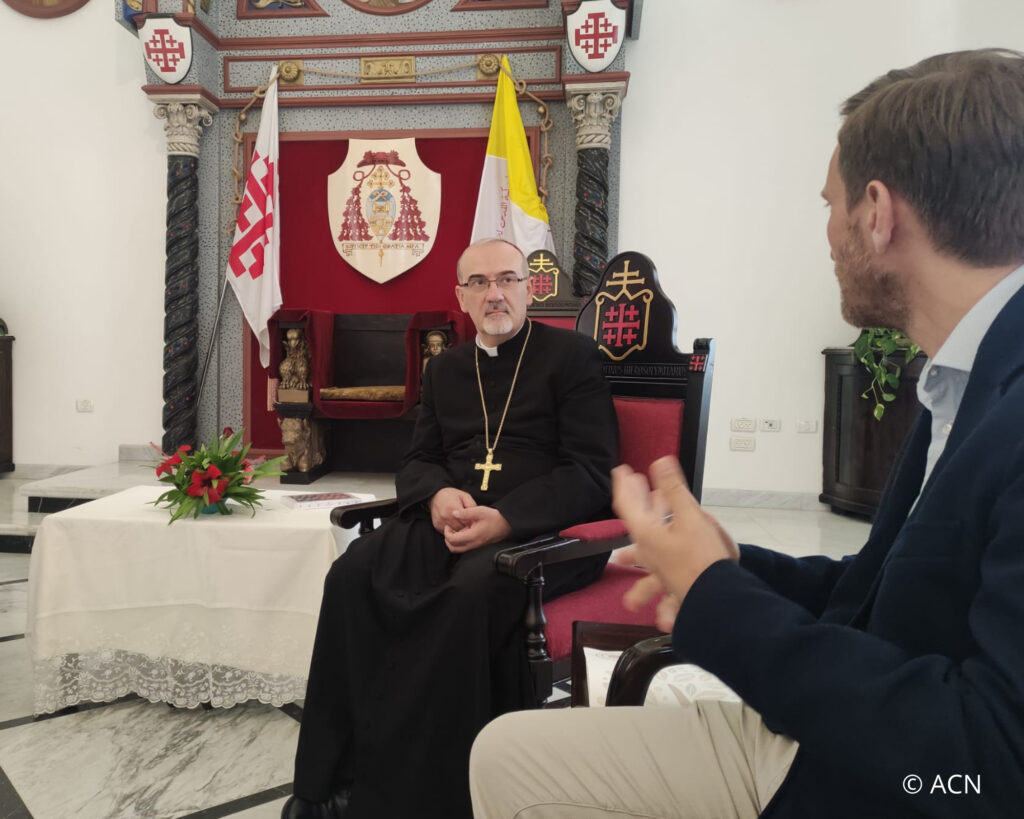Speaking to an Aid to the Church in Need’s delegation from Aid to the Church in Need (ACN), visiting the Holy Land from 15 to 19 July to show solidarity with the local Christians and evaluate projects to help the Church in the region, the Patriarch explained that “the situation is so polarized that if you are close to the Palestinians, the Israelis feel betrayed, and vice versa. When I speak of the suffering of Gaza, the Hebrew Catholics tell me about the areas which suffered in the 7th of October attacks, and on the other side, the Palestinians think only of Gaza. Everybody wants to have a monopoly on the suffering.”
The Latin Patriarchate of Jerusalem is divided into six vicariates. Jordan, Israel, Cyprus, Palestine—including West Bank and Gaza—and two for the Hebrew-speaking Catholics, numbering around 1,000, and for the migrants and asylum seekers, who number dozens of thousands.
“We have Catholics of the Hebrew vicariate serving in the army in Gaza, and we have Catholics being bombed in Gaza. It is not easy,” the Patriarch told ACN during the meeting.
“We have to leave politics behind, we have to meet and pray together. Now that the wounds are bleeding it is not the time to speak of politics. Recognizing the suffering of the other is not that simple when one is suffering,” said the Patriarch.
The solution, according to Cardinal Pizzaballa, is not a false neutrality, but it is also important not to let the Church get sucked into the conflict. “I keep being told I need to be neutral. Come with me to Gaza, speak to my people who lost everything, and then tell me I have to be neutral. It doesn’t work. But we cannot become part of the political, or military clash or the confrontation. We have to be a constructive presence, but it is not simple to find the right way.”
The Patriarchate is doing what it can to help the small Christian community in Gaza, but the situation is so unstable that it is extremely difficult. It can take weeks to get aid into the region, and the reality on the ground is so fluid that it is useless to make long-term plans.
“It is very difficult to do something for the future of Gaza, but we have priorities. All the schools are destroyed or used as shelters, but the children have already lost one year of studies, and the families want schooling for their children, so we are trying to introduce caravans to serve as schools. We need to find teachers, however, and we have to work with what remains of the Palestinian authorities,” he explained.
By: acn-canada






